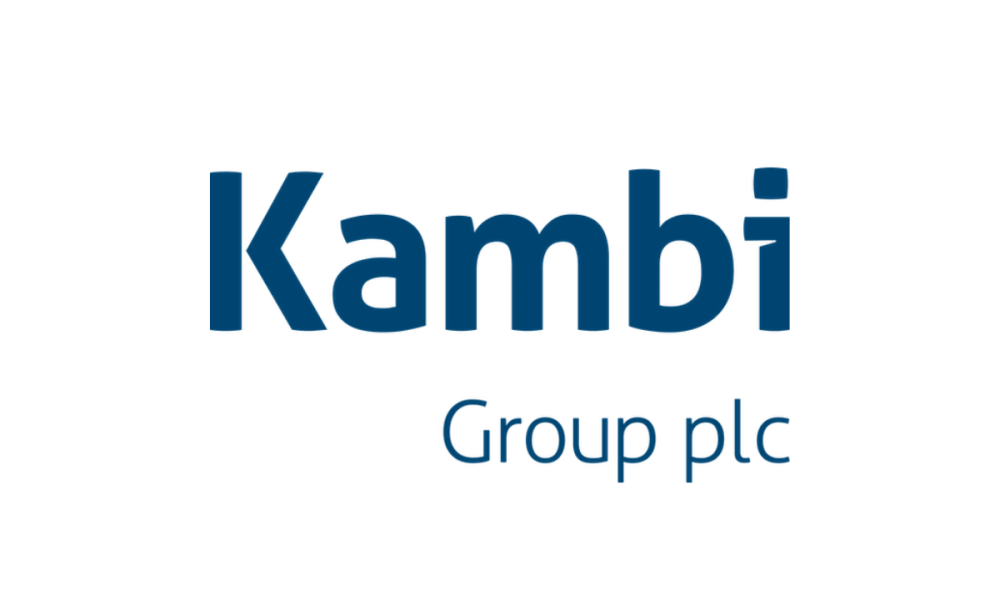Gambling in the USA
Pennsylvania Sportsbooks Lose Out On $220 Million In Bets While Online Casinos Hit New Revenue Record In March

With $24.3 million in revenue, online casinos and poker lone bright spot for the industry, according to PlayPennsylvania
LAS VEGAS — The handle for Pennsylvania’s retail and online sportsbooks shrunk in March to its smallest monthly total since August 2019, while online casinos and poker exploded to a new record. Coronavirus shutdowns loom over the gambling industry, costing sportsbooks $220 million in wagers in March, according to PlayPennsylvania estimates, and sending home-bound bettors to online casinos and poker rooms in record numbers.
“Pennsylvania’s gaming industry is navigating waters that are unprecedented anywhere,” said Dustin Gouker, lead analyst for PlayPennsylvania.com. “It’s an industry that employs thousands in Pennsylvania and generates millions of dollars in tax revenue, and it is not designed to be closed. Growth in online casinos is helping, but it can’t entirely make up for the revenue lost from sports betting and land-based casinos being shut down.”
Pennsylvania sportsbooks appeared headed for its first month with a handle of more than $350 million in revenue. But with the sports world largely shuttered after March 11, Pennsylvania’s handle slumped to just $131.3 million for the month, according to official data released Thursday. That is down 60.2% from $329.8 million in February, though up from $44.5 million in March 2019, before online sports betting launched.
March’s revenue hit $8.6 million, up from $4.7 million in February. The win resulted in $2.3 million in tax revenue for the state.
The suspension of the NBA season on March 11 sent shockwaves through the sports world, leading to the eventual indefinite shut down of most major events. That included the cancelation of March Madness, which would have attracted $100 million in bets at Pennsylvania sportsbooks, according to PlayPennsylvania estimates. The closures have limited books to futures betting, mostly on the NFL, and some international sports.
“The timing of the coronavirus shutdowns was particularly damaging to Pennsylvania sportsbooks, costing the industry millions in basketball-related bets,” Gouker said. “The first weekend of March Madness is the second-biggest sports betting event in the U.S., behind only the Super Bowl, and its cancellation leaves no feasible way to make up that revenue. Obviously, there are dramatic health and economic concerns for everyone right now, but the loss of revenue will be felt by Pennsylvania’s gambling industry for quite some time.”
$118.3 million, or 90.1%, of the state’s March handle came from online betting. FanDuel Sportsbook at Valley Forge Casino led the market with $53.7 million in March wagers, down from $138.5 million in February. That yielded $2.8 million in taxable revenue, up from $146,080 in February. FanDuel was followed by:
- DraftKings at The Meadows ($28.6 million in handle, down from $72.3 million; $1.5 million taxable revenue, up from $1 million)
- Rivers-Philadelphia ($12 million in handle, down from $24.7 million; $601,984 revenue, down from $784,565)
- Rivers-Pittsburgh ($8.2 million in handle, down from $18.9 million; $535,860 revenue, down from $680,514)
- Parx Casino ($7.9 million handle, down from $19.9 million; $618,159 revenue, down from $818,817)
- Fox Bet at Mount Airy ($6.1 million handle, down from $14.4 million; $159,013 revenue, down from $539,372)
- Unibet at Mohegan Sun Pocono ($1.2 million handle, down from $4 million; $19,750 revenue, down from $86,558)
- Presque Isle Downs ($483,429 handle, down from $1.4 million; $23,905 revenue, down from $37,258)
- Harrah’s ($139,790 handle, -$18,075 revenue)
Rivers-Philadelphia led the retail market with a $2.3 million handle, down from $7.2 million in February. That yielded $146,281 in revenue, down from $383,793. Rivers-Philadelphia was followed by:
- Parx ($2 million handle, down from $5.9 million; $168,090 revenue, up from $127,231)
- Rivers-Pittsburgh ($1.8 million handle, down from $6 million; $130,270 revenue, down from $809,858)
- South Philadelphia Race and Sportsbook ($1.1 million handle, down from $2.7 million; $87,757 revenue, down from $181,236)
- Presque Isle ($1.1 million handle, down from $1.7 million; $35,838 revenue, up from $12,865)
- Harrah’s Philadelphia ($1 million handle, down from $2.9 million; $94,056 revenue revenue, up from -$64,494)
- Valley Forge Casino ($859,504 handle, down from $2.5 million; -$40,280 revenue, up from -$75,306)
- Mount Airy ($769,909 handle, up from $589,668; $14,344 revenue, up from -$20,065 in revenue)
- Hollywood Casino at Penn National Race Course ($571,511 handle, down from $2.1 million; $53,730 revenue, up from -$150,053)
- Mohegan ($463,552 handle, down from $1.7 million; -$15,336 revenue, down from $19,561)
- Oaks Race and Sportsbook ($284,736 handle, down from $856,374; -$8,526 revenue, down from $17,529)
“The bottom line is that Pennsylvania’s sportsbooks will not be healthy again until the sports world begins to reopen,” Gouker said. “No one yet knows for sure when that day will come. But sports leagues everywhere are trying to figure out ways to begin games again, so there is at least some reason for some optimism.”
Online casinos and poker boom
With land-based casinos closed and many of the state’s residents home-bound, Pennsylvania’s online casinos and poker rooms boomed to dramatic new records. Combined, online casino games and poker generated a record $24.3 million in revenue, easily surpassing the previous best of $19.5 million in revenue set just last month. March’s gains yielded $5.9 million in tax revenue for the state.
Poker alone generated $3.1 million in March revenue, all by Mount Airy/PokerStars, the lone online poker operator in the state. Previously, the all-jurisdiction record for poker revenue in a month was $3.1 million, set in October 2016 in New Jersey. The Garden State also set a new record in March with $3.6 million.
Online casinos boosted monthly revenue to $21.1 million on $871.6 million in wagers, which was up from $547.6 million in bets in February.
A high tax rate and technological issues had slowed the development of Pennsylvania’s online casinos and poker industry, and even now those issues continue to impede the market. But March’s gains were much-needed for an industry with nowhere else to turn.
“Pennsylvania’s online product has been slow to develop, but the revenue the industry is generating now is vital to the gaming industry and the state budget,” Gouker said. “Ideally, Pennsylvania’s online casino industry would’ve had the opportunity to mature more quickly. But it is definitely better than if it didn’t exist at all, as is the case in most states.”
Other important online data from March:
- Rivers-Philadelphia led the market with $6.8 million in revenue on $293.2 million in wagers. That is up from $4.8 million in revenue on $194.7 million in wagers in February.
- FanDuel/Valley Forge Casino was second with $5 million in online revenue on $250.6 million in wagers. That was down from $6.1 million in revenue on $279.3 million in wagers in February.
- Casinos and poker generated $782,768 per day in the 31 days of March, up from $672,097 per day in the 29 days in February.
For more information on the revenue generated by Pennsylvania sports betting, visit www.playpennsylvania.com/revenue.
Powered by WPeMatico
Gambling in the USA
Kambi Group plc extends Mohegan partnership with on-property sports betting agreement in Pennsylvania

Kambi Group plc (“Kambi”), the world’s trusted sports betting partner, has agreed a long-term on-property sportsbook partnership with Mohegan to provide its award-winning sportsbook at two retail locations in the state of Pennsylvania.
The partnership will see Mohegan utilise Kambi’s cutting-edge retail sportsbook offering across more than 20 kiosks in sportsbook locations at Mohegan Pennsylvania and Mohegan Pennsylvania at Lehigh Valley Race and Sportsbook.
The deal further strengthens Kambi’s relationship with Mohegan, which already utilises Kambi’s suite of sports betting products at ilani in Washington, as well as online and on-property in the Canadian province of Ontario at Fallsview Casino Resort and Casino Niagara.
Kristian Nylén, Kambi CEO and Co-founder, said: “With several successful partnerships with Mohegan already in place, we are pleased to agree this new partnership as we continue to build on our strong relationship.
“This latest deal further reinforces Kambi’s position as the sportsbook provider of choice for tribes across North America, and we look forward to our ongoing collaboration with Mohegan.”
Tony Carlucci, President & GM of Mohegan Pennsylvania, said: “Mohegan Pennsylvania is excited to continue utilising the same Kambi technology platform that existed under our Kindred partnership, which will help to create a seamless process as the Sportsbook at Mohegan Pennsylvania fully rebrands later this Spring.”
Blockchain
JuicyBet Launches Its Innovative GambleFi Platform

JuicyBet, a Web3 startup, announced the launch of its GambleFi platform. This platform combines finance technology and gambling via blockchain to create unique opportunities and experiences for users. The company strives to revolutionize the principles of the online betting industry and the interaction between platforms and users in this market.
What is GambleFi?
GambleFi uses blockchain technology to ensure the fairness and transparency of games and betting outcomes and for players to get their share of the platform’s earnings and participate in its governance and day-to-day by holding its tokens.
How JuicyBet works
JuicyBet fully utilizes blockchain technology to establish a new ecosystem that has never been seen in the gambling industry. It is centered around user participation and transparency while providing gambling thrills and quality entertainment.
All game records on the platform are kept in a public blockchain, while a set of smart contracts automates gaming outcomes and payouts and provides for the platform governance via the DAO model. This reduces fraud risks and operational costs, making JuicyBet a more efficient platform.
However, the platform’s main feature is the unprecedented level of user engagement via the platform’s native tokens.
- First, the tokens provide access to betting.
- Second, token holders get their share of the platform’s profit.
- Third, token holders can vote on key decisions on the platform’s development in JuicyBet DAO.
- And finally, DAO participants can also perform the role of oracles for bets and earn rewards.
In other words, JuicyBet doesn’t try to be just another gambling platform. It establishes a new ecosystem where users are in control of the platform and bets and are the beneficiaries of the platform.
In addition, JuicyBet offers additional earning opportunities, such as Double Farming and staking for token holders.
JuicyBet has already been noticed by users and investors – the platform’s 3-month turnover has exceeded $1,5 million, according to on-chain data available via Dune, and multiple centralized exchanges and launchpads have listed it.
eSports
R&D rethink needed for sportsbooks to harness esports’ power

 Esports betting is still grappling with a perception problem amongst operators. Despite the leaps and bounds in product development made by suppliers – particularly in the last two years – esports hasn’t shaken off the image built in the late 2010s.
Esports betting is still grappling with a perception problem amongst operators. Despite the leaps and bounds in product development made by suppliers – particularly in the last two years – esports hasn’t shaken off the image built in the late 2010s.
Our good friend, Oliver Niner, Head of Sales at PandaScore, has been kind to share the below article with us.
There’s scepticism around esports betting’s value, how well it can actually perform and what’s needed to make it appeal to bettors. A big part of that comes down to perception, which shapes the research and development (R&D) choices made by each operator.
Self-fulfilling prophecy?
Operators who have put the research and development (R&D) resources into esports are seeing excellent growth, while others are still treating it like part of a long tail. The lack of a uniform approach to esports often translates into hesitancy to be bullish and invest in esports.
Whereas in the United States, post-PASPA sports betting has exploded and operators are seeking to capture as much territory and market share as possible because in most cases, you switch the lights on and the money comes in. It’s, of course, good business sense to take opportunities like this – you can apply the same templates used elsewhere on an incredibly lucrative market.
This kind of approach has been attempted for esports and hasn’t found the same success. Granted, the legislation for betting on esports has been somewhat slower than that of sports betting and iGaming.
However, bullish operators have acknowledged the fact that esports hasn’t found the same success in regulated states and asked what can be done differently, while for others, esports has been thrown into the too-hard basket or relegated to the bargain bucket.
For the latter, the fate of the esports vertical becomes a self-fulfilling prophecy – especially if an operator already using a budget esports product that throttles its very growth.
It takes two to tango
When esports is discussed in broader betting circles, you’ll often hear different versions of the same talking point: the problem with esports is no one is doing it well, it doesn’t innovate.
This argument is a case of the pot calling the kettle black. Esports is a driver of innovation, and it is sportsbook R&D that is holding it back.
Multiple suppliers on the market are investing significant resources into R&D, and bullish operators are leveraging these product innovations to acquire new customers and create engagements made for the internet age.
There are understandable reasons why sports betting doesn’t innovate. It’s largely because operators focus on acquisition, entering new territories and spending money on data rights. But the actual R&D on sportsbook products is left lacking, with ever-increasing cost-per-acquisition (CPA) numbers a clear symptom of this.
It means that if an operator does decide to use or acquire an esports specialist supplier but does little to cater its product and attempts to just lay the sports betting template over the top, of course performance will be throttled.
It’s like putting a Ferrari engine in a Prius – no offence to Toyota or Prius owners.
The same problem exists on the platform supplier front. Platforms are understandably focused on compliance and getting customers live, not necessarily improving models or their products.
Even the idea that if you just acquire an innovative company the problem is solved or you have found the solution, doesn’t hold water. In many cases, the company is acquired and plenty of noise is made about it, but there’s little organisational investment in R&D afterwards.
It’s not just in esports
These problems extend to customer acquisition and marketing for most emerging markets, not just esports. There’s a rush to use the same old playbook in newer sectors because it’s easy.
The fantasy vs. house sector in the US is already experiencing an acquisition arms race. As analyst Dustin Gouker points out, deposit match bonuses for new users on fantasy vs house products have jumped from $100 to as high as $500 in some places.
This is the same race that played out in sports betting and despite the costs, there’s little effort from most operators to try something different. There’s less work when you just put the same acquisition template on an emerging sector and call it a day. This seems to be an accepted practice in the industry, for better or for worse.
Esports betting success requires ongoing dialogue
Rather than attempting to wedge esports into hegemonic sportsbook approaches, sportsbooks need to take a completely unique approach.
The fact is the betting sector has barely scratched the surface – communities of esports fans are still dormant. Canadian operator Rivalry has built a successful, esports-first business by embracing the ever-changing internet culture that esports inhabits. French esports organisation Karmine Corp recently sold out a 30,000-person stadium for an event with no prize money up for grabs.
Innovative products developed on the supplier side like microbetting and betbuilders are only half of the equation.
Maximising esports revenues requires institutional investment, ongoing R&D and collaboration between suppliers and operators to create products and experiences. This includes having staff on the operator side that can drive and push the product further, and crucially, rethinking current sportsbook strategies and practices.
Building experiences for betting’s greatest emerging market – one that caters to your future core audience – takes investment, innovation and a willingness to experiment. If the industry wants to make the most of the Millennial and Gen Z audience that will become its primary customers, investment into R&D and close collaboration between suppliers and operators is needed. Many hands makes light work.
-

 Balkans4 days ago
Balkans4 days agoCT Gaming to Showcase its Latest Products at the Belgrade Future Gaming Exhibition
-

 Australia4 days ago
Australia4 days agoNerida O’Loughlin Reappointed as ACMA Chair
-

 British Columbia Lottery Corporation4 days ago
British Columbia Lottery Corporation4 days agoSCCG Management Signs Contract with British Columbia Lottery Corporation
-

 Asia4 days ago
Asia4 days agoIndonesia Establishes Task Force to Combat Online Gambling
-

 Latest News4 days ago
Latest News4 days agoNetBet Casino Joins Forces with Habanero
-

 Latest News4 days ago
Latest News4 days agoPRAGMATIC PLAY DROPS CANDY BLITZ BOMBS
-

 BiS SiGMA Americas3 days ago
BiS SiGMA Americas3 days agoSportingtech Places New Local Talent Front and Center at BiS SiGMA Americas
-

 Andre Filipe Neves3 days ago
Andre Filipe Neves3 days agoSalsa Technology Hails Hugely Successful BIS SiGMA Americas




















